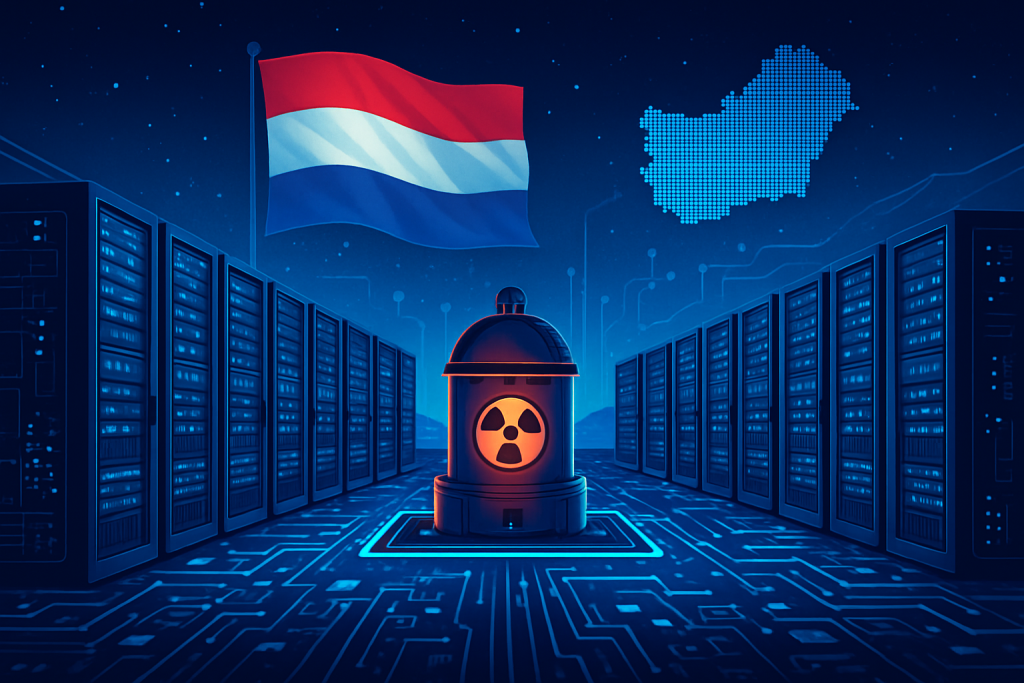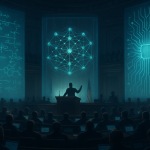The digital iron curtain just got a little bit thicker. Yesterday, from the hallowed halls of AI Journey 2025, Russia’s President Vladimir Putin dropped a bombshell: a brand-new national task force dedicated to the development of generative AI. The implications? Far-reaching, complex, and frankly, a little bit Bond villain-esque.
Think of it as Russia’s AI moonshot, but instead of landing on the lunar surface, they’re aiming for technological sovereignty. Putin made it crystal clear: relying on foreign AI is a no-go. It’s like trusting your state secrets to a chatbot designed in Silicon Valley – a risk he’s simply not willing to take. In his view, a nation’s values are encoded in its technology, and relying on external sources is akin to outsourcing your national identity. Strong words, indeed.
The announcement, while significant, wasn’t entirely unexpected. Whispers of Russia’s ambition to become an AI powerhouse have been circulating for years, fueled by a desire to compete with the US and China in this crucial technological arena. This task force is the formal declaration of intent, a doubling down on their commitment to building a homegrown AI ecosystem.
But what does this task force actually do? Beyond the political rhetoric, the plan has some serious meat on its bones. First, they’re building data centers. Lots of them. And not just any data centers – these are envisioned as self-sufficient hubs powered by local energy sources, including small-scale nuclear power stations. It’s a bold move, showcasing a commitment to energy independence alongside technological autonomy. Imagine a network of AI fortresses, each churning out algorithms and insights, all fueled by the atom. It’s the kind of imagery that could fuel a dozen dystopian sci-fi novels.
Second, they’re focused on advancing domestic AI models. Putin acknowledged that Russia is currently lagging behind the US and China, but he also touted existing models like Sberbank’s Gigachat and YandexGPT as crucial stepping stones. Sberbank, once just a bank, is now a full-fledged tech company, flexing its AI muscles with humanoid robots and health-scanning ATMs. It’s a bit like if Bank of America suddenly started building Terminators – surprising, to say the least.
The timing of this announcement is crucial. Western sanctions, particularly those restricting the import of microchips, are hampering Russia’s ability to expand its computing capacity – the lifeblood of AI development. This task force is, in part, an attempt to circumvent those limitations, to find creative solutions and build a robust AI infrastructure despite the external pressures. It’s a classic case of necessity being the mother of invention, or perhaps, in this case, the mother of AI.
The Economic Angle: Rubles and AI
Putin isn’t just thinking about national security; he’s also eyeing the economic potential of AI. He projects that AI-powered technologies could contribute over 11 trillion roubles (that’s roughly $136.6 billion) to Russia’s GDP by 2030. That’s a serious chunk of change, and it underscores the belief that AI is not just a strategic asset but also a key driver of future economic growth. He’s urging state institutions and companies to embrace AI, to weave it into the fabric of their operations. It’s a top-down push, a national mandate to become an AI-first nation.
The Security Imperative: No Foreign Code Allowed
But here’s where things get really interesting, and potentially a little unsettling. Putin explicitly stated that exclusively Russian-developed AI models must be used in national security and intelligence sectors. The rationale? To prevent data from being transmitted abroad. This is about data sovereignty, about ensuring that sensitive information remains within Russia’s borders. It’s a digital Maginot Line, designed to protect against perceived threats from foreign intelligence agencies. This raises questions about the potential for increased surveillance and control within Russia. It also hints at a future where AI is used to shape narratives and control the flow of information, a prospect that should give anyone pause.
The Implications: A World Divided by AI
The implications of this initiative are profound. It signifies a growing divide in the global AI landscape, a fragmentation of the digital world. We’re moving towards a future where AI technologies are developed and deployed along national lines, potentially leading to incompatible systems and divergent approaches to AI governance. Imagine a world where AI algorithms are tailored to specific national values and ideologies, where the very definition of “truth” is shaped by the code we use. It’s a scenario straight out of a cyberpunk thriller.
This announcement also raises ethical questions. How will Russia ensure that its AI systems are used responsibly and ethically? What safeguards will be in place to prevent bias and discrimination? Will these systems be used to enhance human capabilities or to control and manipulate populations? These are questions that demand answers, not just from Russia but from all nations pursuing AI development.
Ultimately, Putin’s AI task force is a bold gamble, a high-stakes bet on the future. It’s a reflection of Russia’s ambition to reclaim its place on the world stage, to assert its technological independence, and to shape the future of AI on its own terms. Whether it succeeds remains to be seen, but one thing is certain: the AI race just got a whole lot more interesting, and a whole lot more complicated.
Discover more from Just Buzz
Subscribe to get the latest posts sent to your email.


